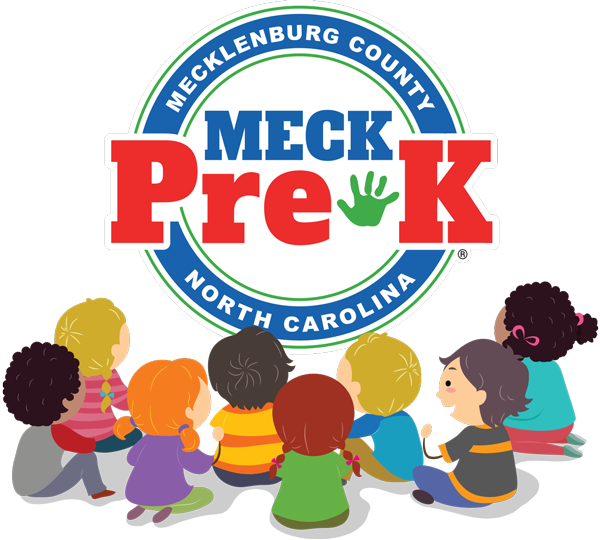There are many ways to observe a child’s growth during the pre-K years. So much is happening for them intellectually, socially and emotionally, it’s almost like seeing a new child emerge every day! As they mature, a pre-K student may develop a broader vocabulary, begin to understand basic math, become more observant about the world around them, make friends, learn problem-solving skills, and so much more.
Pre-K educators observe all of this as well. But in high quality programs like MECK Pre-K, educators also measure growth using the most current and trusted evaluation tools. These tools help teachers know where children are at the beginning of the school year, monitor their progress, and see how much knowledge the children have gained at the end of the school year.
Brigance Early Childhood Screener
MECK Pre-K uses the BRIGANCE Early Childhood Screener, which evaluates key predictors of school success across several developmental domains. Teachers use observation, interviews, and child performance to pinpoint understanding in the domains tied to early development and school or kindergarten readiness.
The key domains are:
- Physical Development
- Language Development
- Academic Skills/Cognitive Development
- Adaptive Behavior
At the start of the school year, MECK Pre-K teachers conduct a “pre-screen” using the Brigance assessment to measure where children are in their growth at the beginning of the year. Then, at the end of the year, they conduct another assessment to see how much knowledge the children have gained.
At the beginning of the 2024–2025 school year, MECK Pre-K’s assessment found that 54.4% of enrolled students were within normal developmental limits or above the gifted cutoff. By the end of the year, 82.5% were within normal developmental limits or above the gifted cutoff. More astonishingly, the number of students who were above the gifted cutoff increased from 4.4% to 28.5%.
Meanwhile, the number of students who started the year with potential delays shrank from 44.5% to 17.3% within the same timeframe. Even within that remaining 17.3% of students who scored below their age level, those students still made a year’s growth. Instead of entering Kindergarten at a 2- or 3-year-old level, they entered at a 3- or 4-year-old level.
Phonological Awareness Screening Test (PAST)
MECK Pre-K also uses the Phonological Awareness Skills Test (PAST) to measure how children hear and work with the sounds in spoken language. This assessment looks at skills such as rhyming, identifying beginning sounds, blending sounds together, and breaking words apart. These skills are the building blocks for learning to read and spell.
The results help teachers know which areas to focus on, so children can develop strong early literacy skills. By the end of the 2024-2025 school year, the percentage of students who were above grade level increased by 35%, and the percentage of those on grade level increased by 9%, whereas the percentage of students below grade level decreased by 56%.
Social and Emotional Learning (SEL)
Beyond academics and early literacy, MECK Pre-K measures social and emotional development. This includes:
- Self-Awareness and Self-Regulation: Recognizing feelings, expressing them appropriately, and using strategies to manage emotions and behavior.
- Building Relationships: Forming trusting relationships with adults and peers, showing empathy, and engaging in cooperative play such as negotiating, sharing, and taking turns.
- Social Problem-Solving: Resolving conflicts, making choices, seeking help when needed, and understanding and respecting classroom rules and routines.
- Positive Approaches to Learning: Supporting curiosity, persistence, and confidence in trying new tasks. When children feel safe and connected, they are more engaged in exploration and learning.
In spring of 2025, MECK Pre-K’s SEL assessment found that:
- 89% of students were on or above level for “Manages Feelings”
- 94% were on or above level for “Follows Limits and Expectations”
- 90% were on or above level for “Responds to Emotional Cues”
- 94% were on or above level for “Interacts with Peers”
- 82% were on or above level for “Solves Social Problems”
These results show that MECK Pre-K students are making strong gains in not just academic skills, but also the social-emotional foundations that set them up for success in kindergarten and beyond.
Looking Ahead
MECK Pre-K is also conducting an independent, longitudinal evaluation to track MECK Pre-K students through 5th grade to assess the long-term impacts of the program. Results of that evaluation will be available in future years and will provide invaluable insights that can be used not only in our community, but in the pre-K industry as a whole.
About MECK Pre-K
MECK Pre-K is a high-quality pre-K program open to all four-year-old children in Mecklenburg County at no cost to families. Classrooms are located in licensed childcare centers and taught by licensed teachers and highly qualified assistant teachers. You can apply online at MeckPreK.org.
Do you have a child who is not old enough for pre-K this year? Sign up for our email list and be notified when they’re eligible for MECK Pre-K. Simply go to MECKPrek.org/future-meck-pre-k-students and select your child’s age group.

